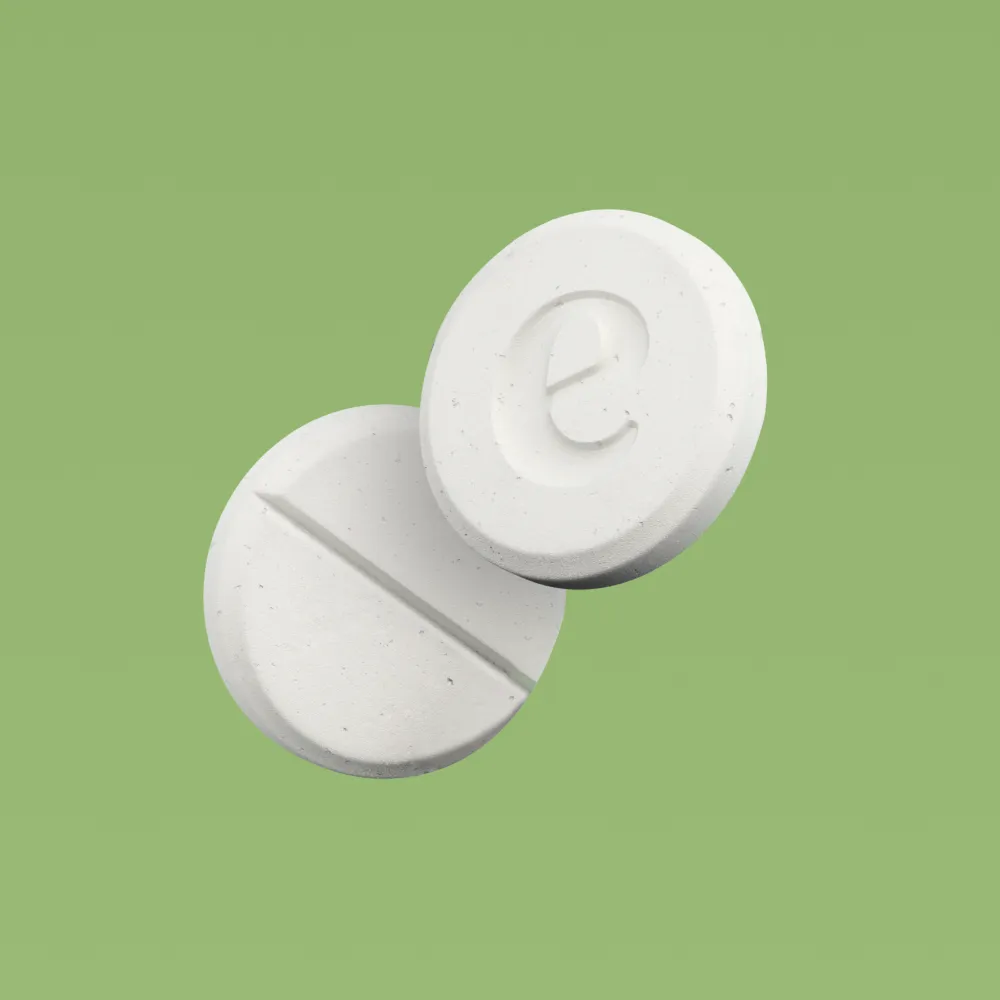Finasteride: DHT Blocking Explained


Learn how finasteride may reduce DHT, a hormone linked to hair loss. Understand your options and speak to a provider through Eden.
- Finasteride is FDA-approved for the treatment of male pattern hair loss (androgenetic alopecia) in certain cases 1.
- Finasteride may work by lowering levels of DHT, a hormone associated with hair follicle miniaturization 2 3.
- Lowering DHT may slow or stop hair loss in eligible patients, depending on individual response.
- Finasteride is available by prescription and may have side effects. Licensed healthcare providers on the Eden platform can guide patients through these considerations.
- Eden connects patients with licensed providers who may prescribe FDA-approved treatments such as finasteride, based on medical eligibility.

Disclaimer: This content is for educational purposes only and does not constitute medical advice. Always consult a licensed healthcare provider. Eden connects individuals with licensed providers who offer personalized treatment plans.
Finasteride is a medication that may help individuals address hair loss by influencing hormone levels in the body, specifically by reducing dihydrotestosterone (DHT). But how exactly does this work? In this article, we’ll break down the understanding behind DHT, how finasteride may block it, and how to explore your treatment options through Eden.
What Is DHT?
Dihydrotestosterone (DHT) is a hormone derived from testosterone. It plays an important role in male development, but later in life, elevated DHT levels may contribute to hair loss in people genetically predisposed to male pattern baldness.
DHT binds to receptors in hair follicles, particularly on the scalp, which may cause those follicles to shrink over time. As a result, the affected hairs may become thinner, shorter, and eventually stop growing altogether.
How Finasteride Works to Reduce DHT
Finasteride belongs to a class of medications known as 5-alpha-reductase inhibitors. This enzyme (5-alpha-reductase) is responsible for converting testosterone into DHT in the body.
By reducing the activity of this enzyme, finasteride may lower DHT levels in the scalp and bloodstream. With less DHT available to bind to hair follicles, the progression of hair thinning may slow or stop in some individuals. In certain cases, patients may even experience regrowth over time.
Clinical studies have shown that finasteride may reduce serum DHT levels by as much as 68%, although results vary between individuals 2.
{{primary-cta}}
What to Expect from Treatment
Patients considering finasteride should understand both the potential benefits and risks. While many see positive changes in hair density or slowed hair loss over several months, others may not respond as effectively.
Common considerations include:
- Results may take 3 to 6 months to become noticeable.
- Treatment must be continuous to maintain results.
- Side effects such as decreased libido, erectile changes, or mood changes may occur in a small percentage of individuals 1.
A licensed provider can help evaluate whether finasteride may be appropriate based on your goals and medical history.
Please note that side effects may include: erectile dysfunction, anxiety, suicidal ideation, brain fog, depression, fatigue, insomnia, decreased libido, and testicular pain.
How Eden Helps
Eden is a digital health platform that connects individuals with licensed providers who evaluate each patient’s needs and prescribe FDA-approved treatments, when appropriate. Eden does not manufacture medications or practice medicine, but we make it easier to start a conversation with a qualified expert.
Through Eden’s platform, eligible patients may:
- Complete a brief intake form from home
- Meet with a licensed provider via telehealth
- Receive FDA-approved treatment plans, such as finasteride, delivered to their door from a licensed pharmacy
Conclusion
Understanding how finasteride works to reduce DHT may help you make more informed decisions about hair loss treatment. While not everyone responds the same way, many individuals have found this FDA-approved option helpful when prescribed and monitored by a licensed healthcare provider.

Blog Components



The FDA does not approve compounded medications for safety, quality, or manufacturing. Prescriptions and a medical evaluation are required for certain products. The information provided on this blog is for general informational purposes only. It is not intended as a substitute for professional advice from a qualified healthcare professional and should not be relied upon as personal health advice. The information contained in this blog is not meant to diagnose, treat, cure, or prevent any disease. Readers are advised to consult with a qualified healthcare professional for any medical concerns, including side effects. Use of this blog's information is at your own risk. The blog owner is not responsible for any adverse effects or consequences resulting from the use of any suggestions or information provided in this blog.
Eden is not a medical provider. Eden connects individuals with independent licensed healthcare providers who independently evaluate each patient to determine whether a prescription treatment program is appropriate. All prescriptions are written at the sole discretion of the licensed provider. Medications are filled by state-licensed pharmacies. Please consult a licensed healthcare provider before making any medical decisions.
Thank you!
We'll be in touch.
Thank you!

















